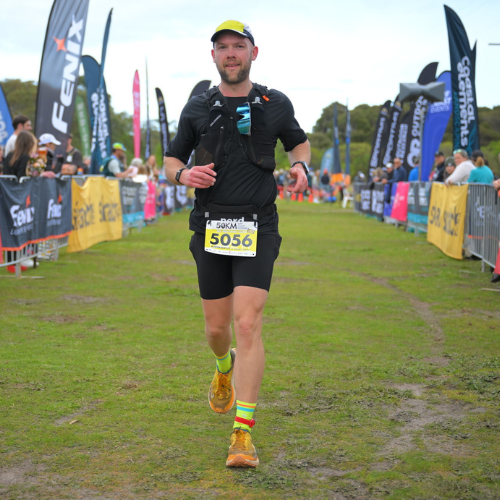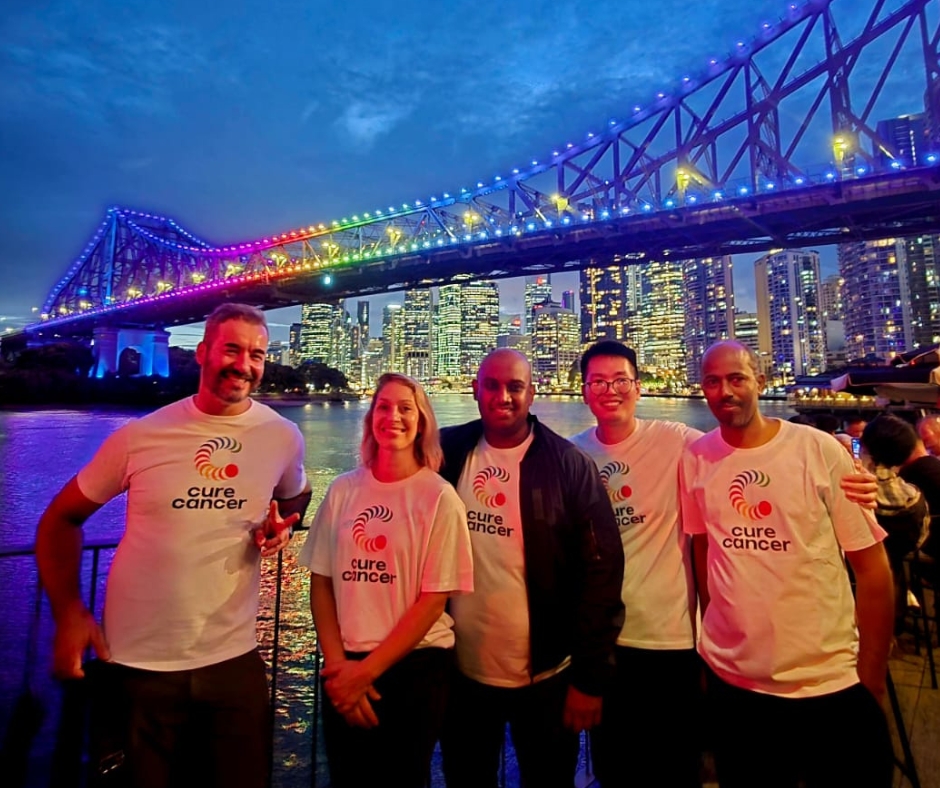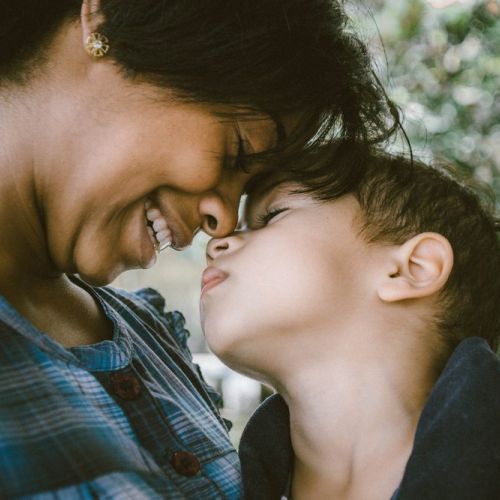‘Ovarian cancer needs more research’: Jo Yates on her cancer journey
By Sylvia Lee | Originally published 17 June 2022
Updated 23 February 2024
Ovarian cancer is the deadliest gynaecological cancer. Yet, there is currently no screening test and it remains an underfunded area of research. Jo Yates first shared her ovarian cancer journey with us in 2022, emphasising the vital need for increased awareness and investment in research. Now, two years on, she is cancer-free and thriving.

Jo Yates is a former video producer and ovarian cancer survivor who finished chemotherapy in 2022.
Nothing prepares you for the moment a doctor asks you if you want to keep your cervix and uterus, and in the same breath, tells you that you are going to go into menopause. But ovarian cancer survivor Jo Yates counts herself as one of the lucky ones.
Before her shock ovarian cancer diagnosis, the 44-year-old former video producer had led an active lifestyle, enjoying Pilates, home renovations, swimming, boxing, and travel. Then, her world came to a standstill.
As the 6th most common cause of cancer-related death for women and people with ovaries in Australia, ovarian cancer also has the most sobering prognosis out of all gynaecological cancers, with a 5-year survival rate of just 49%. Yet research on ovarian cancer research is underfunded and there is no way to screen for it.

A ‘fluke’ ovarian cancer diagnosis
For Jo, a routine Pap smear (now replaced by the Cervical Screening Test) led to her ovarian cancer diagnosis in 2021. Her doctor had found something unusual and initially suspected she had endometriosis or cervical cancer. But after an ultrasound and CT scan, they discovered tumours in both of her ovaries. She needed to have a hysterectomy right away.
“In some ways, I'm incredibly lucky that my doctor took those results seriously,” Jo said. “Because obviously the Pap smear is not looking for ovarian cancer; it was just an absolute fluke. The surgeon in the women's hospital actually said to me, ‘You're very lucky your doctor did anything about this because, to be honest, if I'd seen this result, I would have just put it down to an anomaly and just not have sent you for further tests.’”

Jo Yates says one of the hardest things to cope with were the reactions of her loved ones to her ovarian cancer diagnosis.
Had Jo been diagnosed any later, her story may have ended differently. Reflecting on her journey, she said: “If I hadn't had a doctor who was proactive in getting me tested, my cancer would have been much more advanced and my outcome not as positive. I would not have been lucky enough to just have low-dose chemo and carry on as normal.”
‘There were no obvious symptoms’
Ovarian cancer is notorious for being asymptomatic or having vague symptoms that can mirror other conditions. This makes early diagnosis difficult and increases the odds of being diagnosed at an advanced stage, when prognosis is poor.
“There were no obvious symptoms. After I got diagnosed and was having a hysterectomy, I didn’t want to go down that horrible, scary rabbit hole. But eventually, I did some research and realised that I did have some symptoms.
“I experienced pain after sex, bloating, felt full too quickly, and was going to the bathroom more often, but I had put it down to other things. When you look at it all together, they’re all symptoms of ovarian cancer, but I had absolutely no idea.”


Jo Yates undergoing treatment for ovarian cancer.
“One of the really hard things I had to deal with is [other people’s reactions] and my hair loss,” she said. “I didn’t look like myself, which was really hard to deal with. And I never thought I was a vain person before.”
While she hadn’t planned on having kids, Jo knows that for other women who want to be mothers, an ovarian cancer diagnosis would be devastating.
Life after ovarian cancer
Soon after finishing her final round of chemotherapy in 2022, Jo told us, “I'm carrying on life as normal. I'm actually renovating a house boat at the moment! They're pretty confident that this will be it and I'll be monitored for the next five years.”
Two years on, she is thriving. “I think the biggest positive change is I now want to live every day as fully as possible. My partner and I are currently doing the lap of Australia as I wanted to put living life before working for a bit.”


Jo Yates is living life to the fullest with her partner, Nick.
“The downsides are that I can feel the difference the treatment has made to my body. I ache more, I’m not as fit or strong as I was, and I feel like I’m aging quicker. I also do worry about reoccurrence and have to remind myself every little ache and pain doesn’t mean the worst.”
Jo says ovarian cancer needs more research, education and awareness, noting its lack of attention compared to breast cancer and cervical cancer. While both cancers have national screening programs, there are currently no tests effective enough for an ovarian cancer screening program.
“When I was starting treatment, I couldn’t find the kind of information I wanted to read; it was very dry and not from first person experience. It also didn’t cover things like makeup and skin care for someone in my position.” That’s why she launched Fabulous You During Cancer, a website dedicated to helping other women on a cancer journey. “I wanted to make the journey a little easier for others going through the treatment or supporting a loved one.”

Jo Yates is an advocate for ovarian cancer research and education.
Jo believes research in gynaecological cancer has a long way to go and that talking about gynaecological cancers openly should be normalised.
“Ovarian cancer needs more research. We need more information out there in the public to tell you what to look for so that more people are aware of it.
“It's bizarre that ovarian cancer is not anywhere near as funded or talked about (as other cancers such as breast cancer) maybe because it is taboo. But it shouldn't be that way.”
Ovarian cancer is the deadliest gynaecological cancer, yet it is one of the most underfunded cancer types in cancer research. If Jo’s story has resonated with you, please consider making a life-changing donation to fund vital ovarian cancer research.










